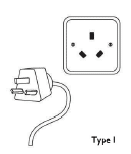FIJI

Fun Facts From Globus Tours
-
-
- There are 322 islands in Fiji and over 500 small islets. Around 110 of these islands are inhabited, although 87% of the population lives on the two biggest islands Viti Levu and Vanua Levu.
- The International Date Line is just east of Fiji, setting the country “ahead” of most of the rest of the world.
- Fiji gained independence from the British Empire in 1970 after 96 years as a British colony.
- To celebrate the New Year, women in the villages join the traditional game called veicaqe moli or “kick the orange.”
-
“Bula!” Fiji welcomes visitors with a fond, heartfelt “hello”. Celebrate your arrival in tropical paradise with a sip of kava or yaqona, a popular Fijian drink made of pepper plant root. Be careful though, the drink has been known to relax your muscles and numb your tongue and lips (for about 5-10 minutes). It may be hard to believe that the ancestors of these friendly, smiling Fijians from a century ago were some of the world’s most ferocious cannibals. The impact of English colonization is marked by the country’s conversion to Christianity and the ever-popular rugby. Fiji was named the “soft coral capital of the world” by infamous Jacques Cousteau, its warm, inviting waters offer a diver’s and snorkeler’s utopia.
Nadi
Whether the soft white sand beaches are calling your name or the crystal clear blue waters, there are plenty of activities to choose from in Nadi. Take in the sweet scent of 2,000 varieties of magnificent tropical orchids at the Garden of the Sleeping Giant and get a bird’s eye view of the surrounding islands from Vuda Lookout while nibbling on delicious fruit from a cliff-side orchard. Or choose to spend your free time kayaking with sea turtles, game fishing or soaking up the sun while reading your favorite book.
Coral Coast
Set on the southern shores of Viti Levu, the Coral Coast boasts 50 miles of brilliant white beaches and secluded bays – a true tropical paradise. With miles of shoreline and a close proximity to the Sigatoka River, water sports are abundant on the Coral Coast. The large coral reef just off of the mainland is the perfect gateway for underwater exploration. Get pampered at the spa, enjoy a stroll on the beach, enjoy snorkeling, surfing, diving and an array of water activities, or just relax with a cold drink by your resort’s pool. The Coral Coast is also home to many local villages, providing visitors with a glimpse into real Fijian life and culture.
VISAS, PASSPORTS, AND OTHER ENTRY REQUIREMENTS
A visa for your visit to Fiji is not necessary for US citizens. If you hold a passport from another country, check with your local consulate about requirements for travel to Fiji.
All passengers traveling internationally are required to have a passport. Most countries require that the passport be valid for at least six (6) months beyond the conclusion of your trip, so please check the expiration date carefully. It is also recommended you have a minimum of three blank pages in your passport when traveling, as many countries require blank pages. Please carry proper identification (your passport) on you and do not leave it in your suitcase or hotel room. Most countries have laws that require you to carry your passport with you at all times.
COUNTRY CODES
The country code for Fiji is 679. When calling to Fiji from overseas, dial your international access code (011 from the US/Canada), followed by the country code, area code, and phone number. Phone numbers in Fiji are 7 digits in length. Dialing from the US/Canada: 011 679 ### ####.
CURRENCY
In Fiji the local currency is the Fiji Dollar. 1 Fiji Dollar (FJD) = 100 cents
-
-
- Banknote denominations: $2, $5, $10, $20, $50, $100
- Coin denominations: 1c, 2c, 5c, 10c, 20c, 50c, $1
-
For the most current exchange rates, please go to our website at Globusjourneys.com/Currency.
Credit cards are widely accepted in Fiji, and you should have no problems using them in larger shops and restaurants. Visa and MasterCard are most accepted. Smaller shops may ask you to pay in cash or have a minimum amount required to use a credit card. If you use a credit card for your purchase, you will be debited in the local currency, and your bank will establish the rate of exchange on the debit.
BUDGETING AND SHOPPING
The following budget guidelines are just approximate values or starting values for meals and are per person. Actual prices will vary widely by restaurant and city within a country but below are some averages as provided by our experienced personnel.
-
-
-
- The approximate cost of a soft drink/mineral water/coffee is $2.
- An average lunch consisting of a salad or sandwich and a soda or water starts at approximately US $6-10.
- Dinner at a mid-range restaurant with dessert and a non-alcoholic beverage starts at approximately US $15-20.
-
-
Shopping
Generally, department stores are open 6 days a week from 9 am to 5 pm while only a select few smaller local shops remain open on Sunday. Some locations offer longer hours on certain days of the week.
Please be warned that if you buy items on tour to be shipped to your home, customs import charges are hardly ever included in the price. Sales tax or GST (Goods & Services Tax) is normally already included on price tags; GST refunds, if applicable, are processed at the departing airport from the relevant country.
TIPPING
Tipping is not customary in Fiji, though you may do so for truly exceptional service.
ELECTRICITY AND ELECTRICAL OUTLETS
Outlets
Voltage for outlets is 240V. North American voltage is generally 110V. Therefore, you will need a converter for your travels. Adapters will be necessary to adapt your plug into the outlet, but these may not convert the voltage, so both devices are necessary. Fiji uses a plug that looks like:
TEMPERATURES
Fiji’s warm, tropical climate experiences only slight temperature variations throughout the year, making packing a breeze. Though you may want to take note of its wet season from January through March and be aware that tropical cyclones can occur between November and April. To help you plan, below are average low and high temperatures for Fiji.

To convert to Celsius, subtract 30, then divide by 2. While not exact, this simple formula will give a close estimation.
FOOD SPECIALTIES
In pre-European days, the Fijians steamed their food in an earth oven (lovo), and eat the huge feasts with their fingers. Many dishes are cooked in sweet lolo (coconut milk), and the walu or Spanish mackerel is the most common fish. Side dish staples generally include cassava, kumala (sweet potato), and taro root. Try a Fijian favorite kokoda (ko-kon-da) – fresh fish marinated in lime juice with fresh vegetables and coconut milk.
As mentioned previously, guests can celebrate their time in Fiji with a cup of kava or yaqona, made of pepper plant root, which may numb your tongue and lips (for about 5-10 minutes).
Drinking Water
Tap water is safe to drink throughout the South Pacific. However, for sightseeing and excursions, we recommend you purchase bottled water to bring with you. Bottled water is also common in restaurants.
CUSTOMS AND CULTURE
Public holidays in the South Pacific are more numerous than at home. On these occasions you may find services in general slightly reduced.
Kava (yaqona) is a popular Fijian drink made of pepper plant root and used in celebrations. Please note the drink has been known to relax muscles and numb tongue and lips (for about 5-10 minutes).
Remember that Fiji may be more conservative than you’re used to. Respect the local culture and dress modestly (cover your shoulders and wear shorts or skirts that cover your knees) when in town or visiting a church. Please keep beach-wear on the beach.
U.S. DEPARTMENT OF STATE COUNTRY INFORMATION
Additional country-specific information for US citizens can be found on the US Government’s website www.travel.state.gov. Here, you can find the most up-to-date information about destination descriptions, passports/visas, safety and security, transportation, travel local laws, alerts/warnings, vaccinations, and more. For citizens of other nations, we recommend you consult your local consulate for travel information, regulations, and requirements.















